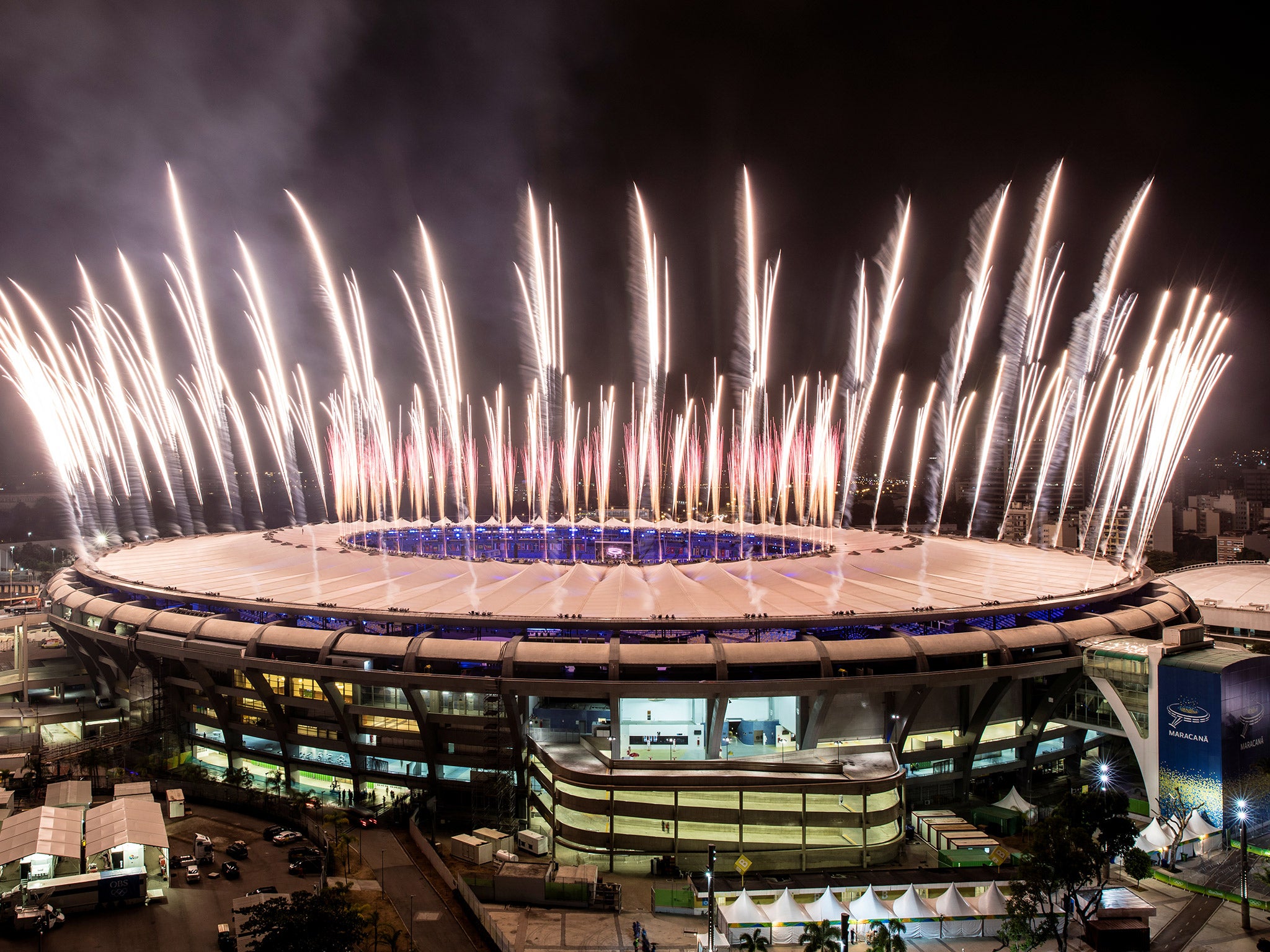Now the games have begun, it's time to see the positives of Rio 2016
This year's Olympic Games are being held in a country which is young and vibrant, and whose strengths have not disappeared simply because the price of commodities has collapsed

Your support helps us to tell the story
From reproductive rights to climate change to Big Tech, The Independent is on the ground when the story is developing. Whether it's investigating the financials of Elon Musk's pro-Trump PAC or producing our latest documentary, 'The A Word', which shines a light on the American women fighting for reproductive rights, we know how important it is to parse out the facts from the messaging.
At such a critical moment in US history, we need reporters on the ground. Your donation allows us to keep sending journalists to speak to both sides of the story.
The Independent is trusted by Americans across the entire political spectrum. And unlike many other quality news outlets, we choose not to lock Americans out of our reporting and analysis with paywalls. We believe quality journalism should be available to everyone, paid for by those who can afford it.
Your support makes all the difference.As with their own rituals – the lavish opening ceremony, the podiums, the medals, the tears – so the Olympic Games also have their own time-honoured cycle of media coverage.
Before the Games there are usually stories about drugs and doping, boycotts, corruption and, of course, whether the facilities will be ready on time. During the Games, the mood lightens and we enjoy all the entertainment that the biggest gathering of athletes in the world will guarantee. After the event concludes, there is usually something of a glow before the rows about the recycling of stadia and athletes’ villages begin.
There no gold medals for originality so far as the Rio Olympics and Paralympics are concerned. We have had many of aspects of the Games played out, in predictable fashion, already.
Which is not to say that there aren’t some genuine problems with the Rio Games. The doping issue, and in particular the attitude of the Russian authorities to it, refuses to go away. For as long as th ere are well-founded suspicions about drug taking by some athletes the prestige of the Games, and especially the cycling and athletics events, will be devalued. Perhaps the International Olympic Committee should have taken a harder line with the Russian contingent, and banned them altogether.
Historically, it has not been so unusual for the Games to have one or more major sporting nations absent from the proceedings – the 1980 Moscow Olympics and the 1984 Los Angeles events were both marked by tit-for-tat Cold War boycotts.
The Games organisers have a difficult dilemma, then, in deciding whether the Olympics and the cause of competitive sport more widely, would be more harmed by suspicions about performance-enhancing substances or the denuded ranks of certain events where the Russians lead the world.
Whenever the games are played, controversy about their costs and benefits follows. Only four years ago there was plenty of argument about the cost to Britain of staging the games, about why they were centred on London, and whether the regeneration of the east of the capital was worth the effort.
As we see today, the Games did help to revive East London, not least by bringing a revolution in its transport links, but in other respects there has been disappointment. The best that could be done with the main stadium is to turn it into a new home for West Ham United.
In Brazil, there are parallel arguments, but made more bitter and urgent by the parlous state of Brazil’s once booming economy, and the corruption scandals that have overtaken the country’s last two presidents.
Back in 2007, when the 2016 Summer Olympics and Paralympics were awarded to Rio de Janeiro, President Lula was the popular and respected leader of one of the world’s fastest growing economies, the country that put the B into BRICs. Today, he and his ally and successor Dilma Rousseff stand accused of wrongdoing in office, and the economy is mired in recession and inflation. As with the London Games, the long-term economic benefits of the events remain to be seen.
Still, there is no reason to be sour about the Rio Olympics, and Brazil’s prospects more generally.
These are the first Olympic Games be held in a South American state, and all the signs are that the stadia is ready, the accommodation complete and the Games set to be a success.
Happily, they are being held in a country which is young and vibrant, and whose strengths have not disappeared simply because the price of commodities has collapsed. The key to Brazil’s economic and political recovery lies in the fact that it is a democratic nation with a free press.
There are plenty of legal protests about the cost of the Games and the government’s programme of austerity, just as there were in Britain in 2012. There will be plenty of diversions in Rio, and no shortage of tales to keep the journalists busy.
But the timeless appeal of the quest for excellence in sport will make Rio’s Games as good as any that have gone before – and with, it is to be hoped, another fine showing by Team GB.
Join our commenting forum
Join thought-provoking conversations, follow other Independent readers and see their replies
Comments